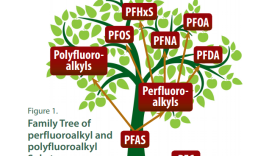President Donald Trump has signed a $2.2 trillion coronavirus stimulus package. Just hours after the House passed the legislation Friday, two New York congressmen from the Hudson Valley said the largest relief package in the country’s history was a necessity. WAMC’s Hudson Valley Bureau Chief Allison Dunne has more.
The Coronavirus Aid, Relief, and Economic Security (or CARES) Act is the third bipartisan COVID-19 emergency relief package. Democrat Antonio Delgado represents the 19th District.
“A much-needed bill that we had to get done, and we got it done,” Delgado says.
Delgado praised the legislation’s support for working families, small businesses and family farms struggling through the pandemic.
“When you’re talking about expanding unemployment insurance in a way that we were able to do with full paycheck replacement, $ increase for every American equating to 100 percent of wages for the average American, that’s a good development,” says Delgado. “And that includes part-time workers, gig workers, self-employed. It’s a broad, broad net.”
Fellow Democrat Sean Patrick Maloney of the neighboring 18th District calls the bill a very good start.
“There are many, many critically important things in this legislation that will benefit the Hudson Valley, so it’s a very good start but we have more work to do,” Maloney says..
“I was going to ask you, what’s next?” Dunne asks.
“What’s next are the measures that will help the economy restart. And we should focus on things like infrastructure that is long overdue, that has bipartisan support, that can be financed at 0 percent interest rates right now, even if we don’t pay for it in other ways,” says Maloney. “And that will really put people back to work and get our economy moving, and that’s where my focus is going to be.”
Again, Delgado:
“And then I was happy to see my bill, the Loan Repayment Act, get in this package as well — $17 billion to cover automatically up to six months of SBA loan repayment on the books currently right now for our small business owners,” Delgado says. “And, of course, our family farms… We were able to secure $9.5 billion for direct assistance payments, and I was able to lead on that issue with Congresswoman Pingree [D-ME]. So, happy that we were able to get things done here for our good folks back home in the district, and the work continues.”
New York Governor Andrew Cuomo has criticized the bill for not helping the state enough. He told WAMC’s Alan Chartock Friday that the state is being punished for redesigning Medicaid.
“This state, not only did it take a beating in this bill but, the previous bill that had $6 billion for New York state allocated in Medicaid money, we don’t even qualify for because they put in a provision in the bill that you cannot make any changed to your Medicaid program,” Cuomo says.
Maloney responds to the governor’s general criticism.
“Well, some of our friends on the other side of the aisle didn’t want to do any support for our state and local governments, so $150 billion represents a victory for the Democratic House in these negotiations, but the governor has a fair argument, that that will not be enough to stem the red ink in a state like New York that is on the front lines,” says Maloney. “So he’s right to point out that we need to do more to support state and local governments but, remember, his argument does not include the billions of dollars that will come to New York, not through Albany, but directly to our hospitals; to the tens of millions of people who will receive cash payments; to the millions of small business owners who can now keep their employees on the payroll and receive forgivable loans, so essentially grants; billions of dollars that will come to our mass transit systems, Metro-north, the MTA. So there are tens of billions of dollars in this package that will benefit New York directly, but the specific amounts that will go to Albany are insufficient to address the budget deficit that the governor is facing, so the governor is facing, so he’s making a fair point.”
The package includes $260 billion in expanded unemployment benefits along with some $200 billion for hospitals, health care workers and health research. It provide immediate direct cash payments to lower- and middle-income Americans of $1,200 for each adult and $500 for each child, beginning to phase out at an annual income of $75,000 for an individual and $150,000 for a household.







